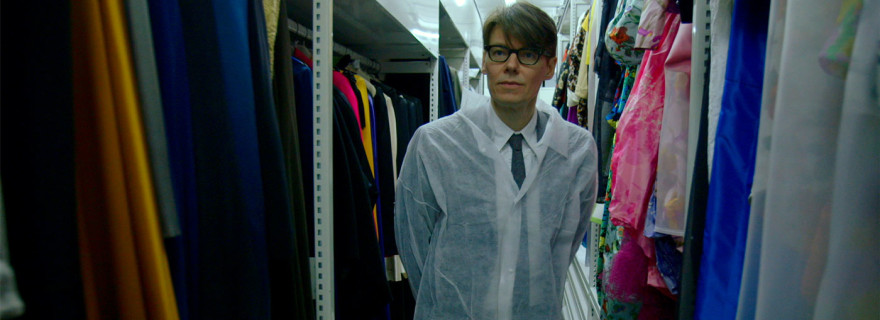'The First Monday in May'
Movie Rating:
3
Director Andrew Rossi established himself as a major documentary voice with his rather brilliant ‘Page One: Inside the New York Times’. The 2011 movie was almost too sprawling in its ambitions, attempting to address every possible issue facing that newspaper as well as the struggles of print journalism in general. His latest feature, ‘The First Monday in May’, is equally sprawling, if somewhat less satisfying.
The subject matter of his new piece just doesn’t seem quite as important, even if that’s one of the many topics that Rossi gets lost in while spiraling down this particular rabbit hole. However, I’m sure those with a sweet tooth for fashion will eat it up, while even those who don’t will enjoy the vapid star-fucking spectacle of it all.
The titular Monday is when the Costume Institute of New York’s Metropolitan Museum of Art reveals its latest exhibition, kicked off with a celebrity-filled party hosted by Vogue with massive profits donated to charity. The main subject of the movie (as much as there is one) is costume curator Andrew Bolton, a dapper and distinctly British gent who dreamed of curating the museum’s vast fashion collection as a child and now lives that dream. He earned big praise for the attendance-record-busting success of his Alexander McQueen retrospective, which helped boost the artistic reputation and value of fashion within the snooty New York art community. Despite that hit, his fashion portion of the museum remains tucked away in the basement and is often dismissed by the more traditional and guarded curators at The Met. The basement location is a nice metaphor for Bolton’s struggle, but it’s tough to feel too bad for him given that the exhibition he’s working on when Rossi’s cameras arrive is by far his most ambitious to date.
“China: Through the Looking Glass” highlights spectacularly ornate costumes and clothing inspired by the aesthetic of Asia. The show includes some actual representations of native Chinese fashion and cult filmmaker Wong Kar-wai is directly involved in the lighting, layout and design of the exhibition, but for the most part the show features works by non-Chinese designers inspired by the country. Bolton is of course quite aware of the touchy nature of the exhibit and builds concepts of Orientalism and cliché into the show as a self-aware door against such criticism. Equally important to the exhibition is notorious Vogue editor Anna Wintour (the woman who inspired ‘The Devil Wears Prada’), who organizes the celebrity-packed opening gala party that raises millions for the museum every year. Wintour doesn’t disappoint on camera, with assistants constantly rushing around to shove a fresh Starbucks cup in her hand, and a flippant comment about a celebrity guest or lowly museum employee never more than a few seconds away.
Andrew Bolton is a charmingly driven figure who truly believes in his vision for the exhibition and is willing to fight to get it exactly right (with the occasional slip into passive aggression). Wintour, on the other hand, is a force of attitude and nature who bulldozes through everyone to get her way. As a study in contrasts between the two personalities, the film can be rather fascinating. The openness and honesty on display isn’t always flattering, but is always interesting. Likewise, the drama involved in putting together the wildly ambitious show on a tight schedule and with potentially politically troubling subject matter generates a wave of nervous suspense that should pull viewers along. Rossi strikes a nice tone that both admires and honors the fashion world, while also having no problem giggling gently at its excesses. (To be fair, his subjects engage in that too. The filmmaker isn’t looking down on them.)
Unfortunately, at a certain point the movie turns into a showboating document of the big Met gala and gets a bit icky in its celebrity worship. Every major star imaginable flashes a smile for the camera with little-to-no engagement. Rhianna’s entourage comes with such strict financial demands that new investors must be sought out for the event, and then she goes ahead and sings “Bitch Better Have My Money” without a hint of irony. It’s kind of gross (although Larry David briefly pops up to dismiss the red carpet hullabaloo for a nice, if brief, undercutting of the excess). It’s also a little sad to watch the movie devolve into a star showcase after everything that came before, even if that’s an accurate depiction of the event.
Ultimately, ‘The First Monday in May’ is a nice documentary with some genuinely intriguing moments, characters and themes, but the effective parts never add up to a satisfying whole. Maybe Rossi bit off more than he could chew or maybe there just wasn’t enough there in first place. Either way, it’s an interesting watch right up until the point that it doesn’t add up to much.



